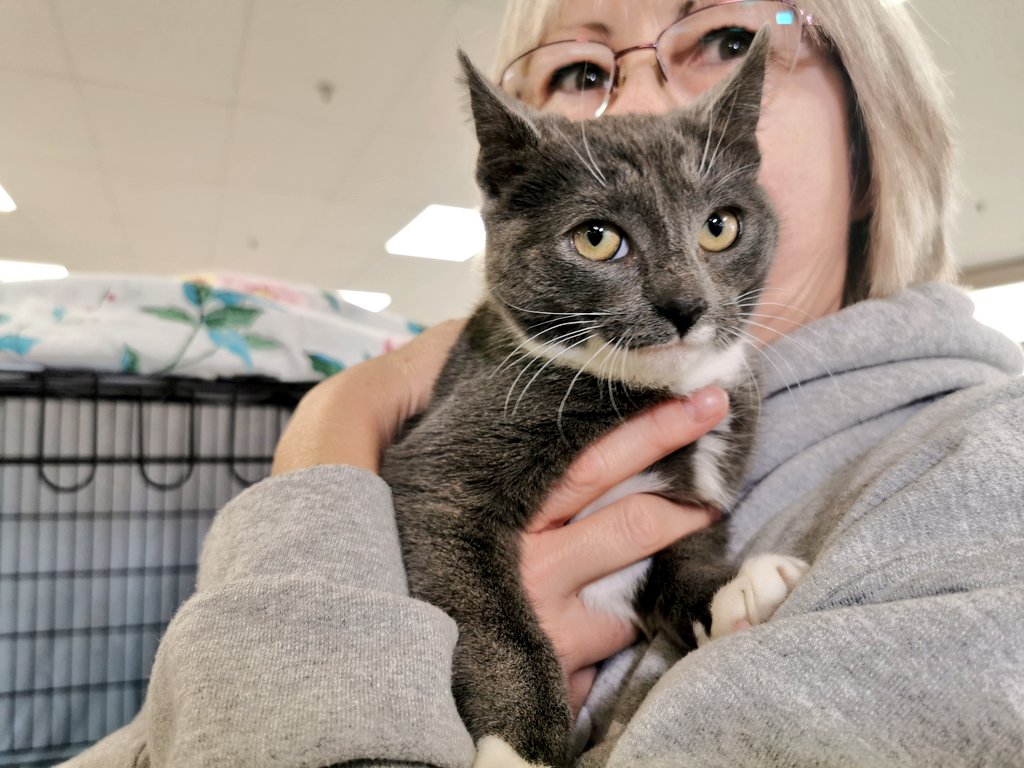A small group of cat rescuers from Nova Scotia are celebrating a successful mission to a small island off the northern coast of Newfoundland, where they were tasked with trapping two colonies of feral cats.

SpayDay HRM worked alongside residents of Little Bay Islands to help rescue dozens of feral cats that have been wildly roaming the small town for years.
The town of Little Bay Islands has been making headlines over its resettlement.
The remaining residents of the island, just over 50, have accepted a financial relocation package from the provincial government of Newfoundland to relocate from the island by the end of 2019.
While residents worked to pack up their lives and relocate, many questions were asked by animal rescue organizations about what would happen to the colonies of feral cats who would be left behind.
The groups said they were waiting for the provincial government of Newfoundland to lay out a game plan, but time was ticking with no action being taken.
That’s when the animal rescue groups decided to work together and come up with their own plan.
“Seeing a group of trappers leave here in a storm and work in pretty terrible weather in Newfoundland and come back home in a storm,” Hugh Chisholm said, the vice-president of SpayDay HRM in Nova Scotia.
Spay Day HRM is a charity organization that helps people with low incomes spay and neuter their cats.

Get breaking National news
The group of animal lovers quickly took a keen interest in the feral cat story that was developing off the northern coast of Newfoundland.
The group says there wasn’t a clear plan from the provincial government of Newfoundland about what would be done with the dozens of feral cats once the island shut down.
“I believe they would have starved to death, a slow painful death this winter,” said Linda Felix, president of Spay Day HRM.
READ MORE: 42 feral cats rescued from emptying Newfoundland town
Felix says the Nova Scotia group began working with Newfoundland animal rescue groups to began hatching a plan to help the feral cats.
After a fundraiser was created and thousands of dollars in donations came in, a small group traveled from Nova Scotia to trap and bring as many feral cats back as possible.
The end number of feral cats brought back to Nova Scotia was 37.
While feral cats are often known to be aggressive, most of the rescued cats are docile in nature.
“These guys are obviously accustomed to humans and were taken care of, offered food, that sort of thing. So, it’s actually turning out to be a pretty good story,” Chisholm said.
READ MORE: Maritime cat rescue seeks help to control ‘staggering’ feral cat population
One of the trappers who travelled through treacherous weather to help locate the two colonies of cats is Tracey Galusha.
“We just set the traps with some good, stinky food and we catch the cats. They’re raccoon traps, they’re humane traps, and then we put them in the truck and transfer them over to a transfer cage,” Galusha said.
Once all the feral cats made it back to Nova Scotia, several vet clinics donated veterinary services free of charge to help them get medically assessed, spayed and neutered.
The next step for the cats of Little Bay Islands is to find homes or barns to be adopted into.
“Well, it’s a happy ending. None of these cats are going to starve to death, and we’ll make sure they’ll go where they’re going to be cared for,” Felix said.









Comments